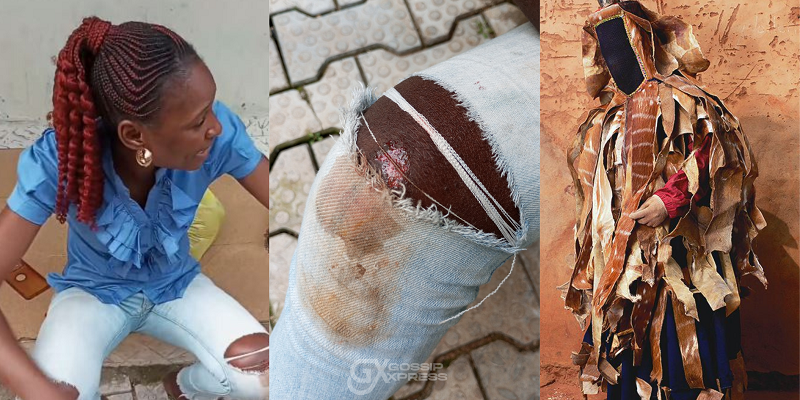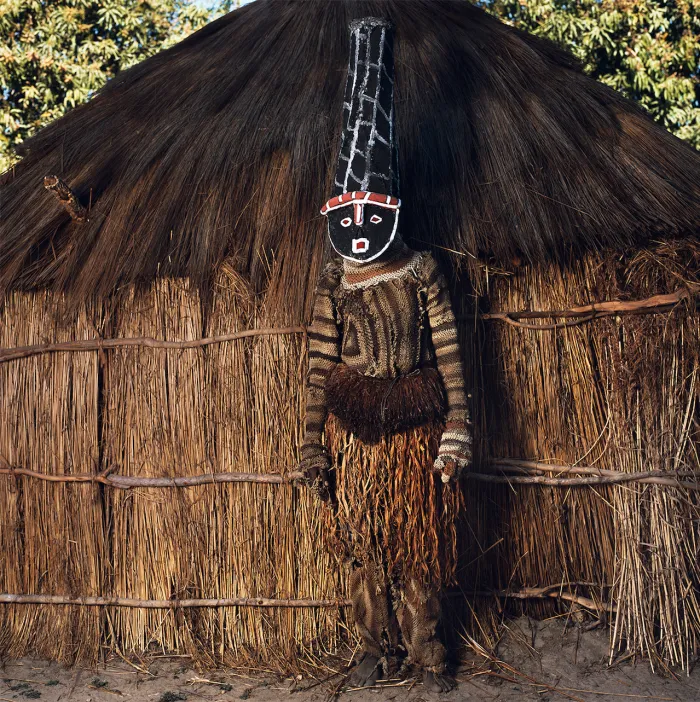Mada masquerade assaults a young lady in front of her own house.
Culture is beautiful when it uplifts people – not when it wounds, humiliates, or terrorizes them. Yet, in recent times, Nigeria has witnessed a worrying trend where ancient traditions are being twisted into instruments of abuse.
The recent incident in Akwanga, Nasarawa State, where a Mada masquerade assaulted a young lady in front of her own house, once again raises an urgent question: when does culture cross the line into criminality?

When Culture Turns Violent
The Akwanga case is not an isolated event. Across the country, similar acts of brutality have occurred under the guise of cultural celebration.
In June 2025, Punch Newspapers reported that three masqueraders were sentenced to prison in Enugu for flogging innocent residents during a festival.
In another case in Nsukka, a masquerade known as Oriokpa was arrested for attacking a female nurse on her motorcycle. The story went viral, leading to public outrage and swift action by the police.
In Anambra, a masquerade was detained for assaulting a Federal Road Safety Corps official, prompting the state government to issue a warning against violence during festivals.
Traditional rulers in the Southeast have also condemned the misuse of masquerades, stressing that culture must never be a cover for lawlessness.
The pattern is clear: the sanctity of culture is being corrupted by reckless individuals who use it as a license for intimidation and violence.

Culture Is Not a License for Assault
Nigeria’s Constitution is explicit about human dignity and freedom.
Section 34(1)(a) of the 1999 Constitution (as amended) prohibits torture and inhumane treatment. Section 41(1) guarantees the freedom of movement. The Anti-Torture Act of 2017 criminalizes any form of physical abuse, no matter the cultural or religious excuse.
No cultural or traditional institution has the right to beat, harass, or restrict citizens in the name of heritage. The lady assaulted in Akwanga – just like others across the country – deserves justice, not trauma. Culture should preserve identity, not inflict pain.
The Mada Masquerade Tradition and Its Excesses
The Mada people of Nasarawa have a proud and colorful cultural history. Their masquerades, known for their elaborate costumes and ancestral symbolism, are meant to represent the spirits of forefathers and to entertain or purify the community.
However, what was once sacred is being desecrated by youths who use masquerade season as an excuse to assault, extort, and intimidate others.
Many victims, especially women and non-indigenes, now live in fear during masquerade outings. Instead of celebration, they experience harassment. This is not culture; it is criminal behavior hiding under the mask of tradition.
Authorities Must Act
It is time for the Akwanga Local Government Council and traditional institutions to regulate masquerade activities.
Every masquerade group should be registered, supervised, and held accountable. The police must treat these cases as serious assaults – not as “cultural matters.”
In Enugu and Anambra, masqueraders who assaulted people faced the law. The same should apply in Nasarawa.
The government should work with community leaders to set clear rules: No masquerade should carry weapons or flog anyone. Public safety must take precedence over cultural expression. Any assault must attract prosecution, not settlement at the palace.
Culture is supposed to unify, not divide. It should reflect pride, not barbarism. When people use tradition to harm others, they betray the very ancestors they claim to honor. There is no dignity in a culture that thrives on fear.
As one concerned citizen, Christian Magani Wanche, Esq., rightly argued:
“No cultural, traditional, or religious institution has the authority to assault or curtail the rights of Nigerian citizens under any guise.”
He is correct. The time has come for enlightenment. Festivals should promote tourism, economy, and joy – not violence and shame.
The Akwanga masquerade assault is a wake-up call. If Nigeria must modernize while preserving culture, there must be a clear line between celebration and criminality. The masquerade should remain a symbol of spirituality and artistry – not of brutality and oppression.
Culture without discipline is chaos. Tradition without respect for human rights is tyranny. Let the spirit of our ancestors guide us toward peace, not pain.


